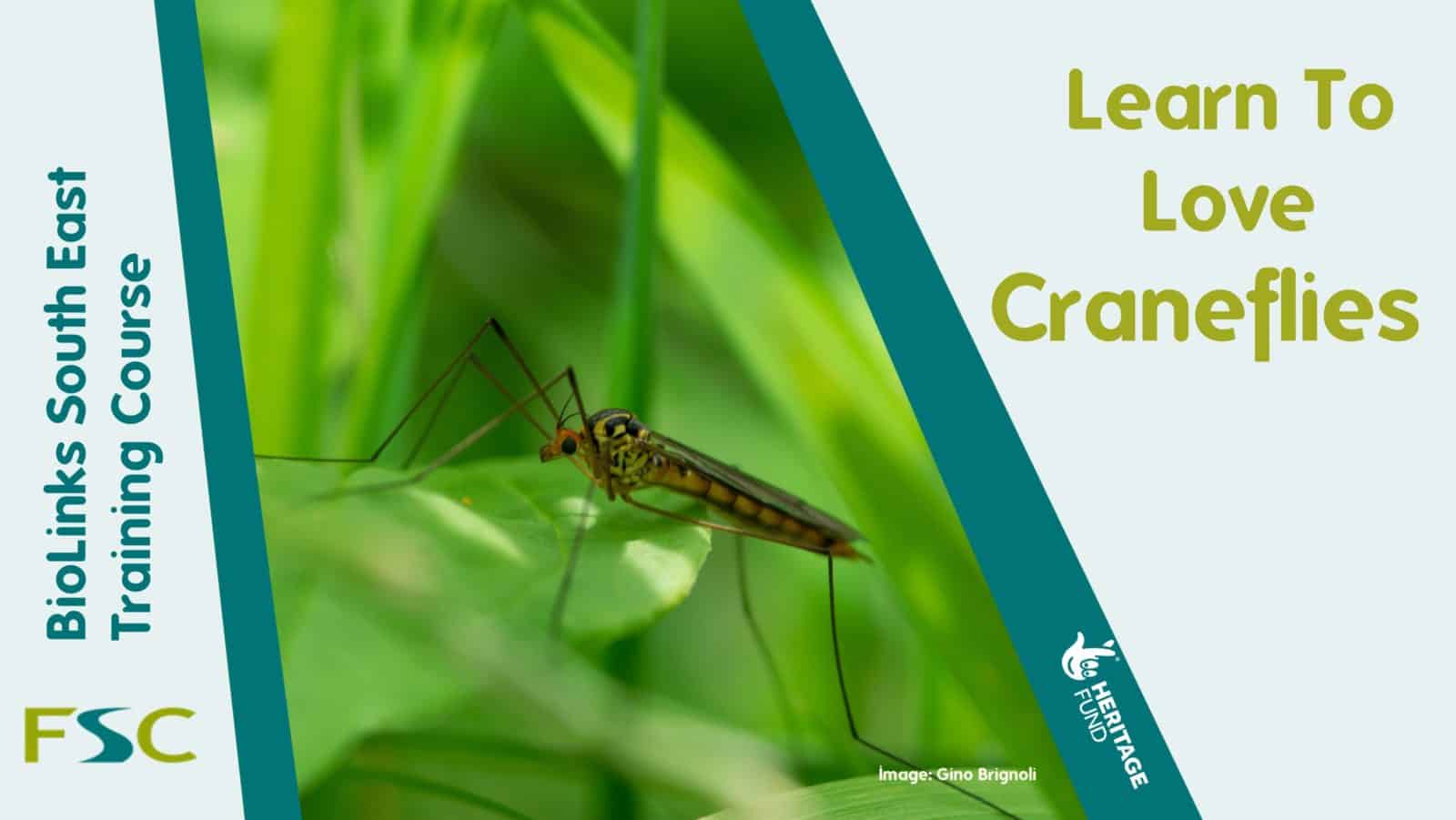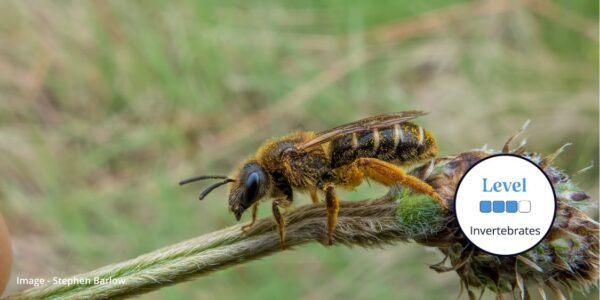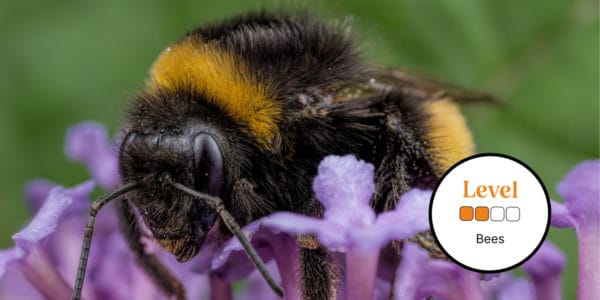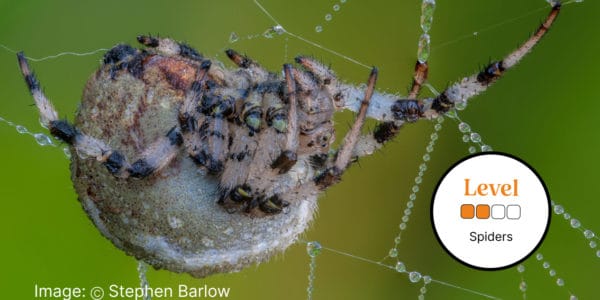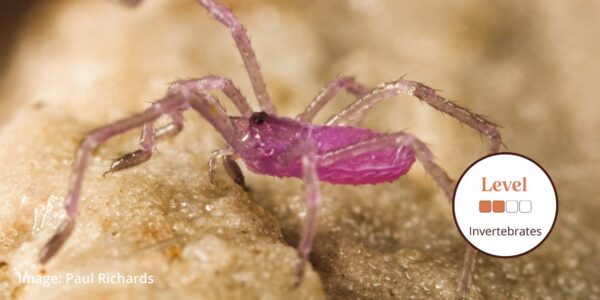Sometimes known as ‘daddy long legs’, craneflies are one of the insect groups that can be active in the UK all year-round. With around 350 species found in the UK, this course introduces aspects of their biology, ecology and behaviour.
This course combines the use of classroom-led learning and outside learning opportunities led by one of our fly tutors to give individuals the skills and confidence to learn more about the lives and ecological roles of craneflies.
- Certificate upon course completion.
- Please email [email protected] if you have any questions.
- Please note that this course is NOT a species identification course and will only go as far as categorising craneflies into subfamilies.
This course is aimed at adults only and course attendees must be at least 18 years old in order to attend.
What will be covered during this course?
-
- An introduction to cranefly biology, including their anatomy and morphology.
- An overview of the species diversity of craneflies in the UK
- How to go about finding craneflies in different habitats.
See the ‘Example Timetable’, ‘What’s Included’ and ‘Before You Attend’ sections below for more information about this course.
Course Fees
Regular Price: £75 For professionals and residents outside of the UK. Select ‘Attendee: In Person’ Sold Out
Subsidised Price: £10 Subsidised by the FSC BioLinks project for non-professionals eg. volunteers, biological recorders, wildlife gardeners, amateur naturalists and students.Available to UK residents only. Select ‘Attendee Subsidised: In Person’
Tutor: Peter Boardman
Pete first got into flies after volunteering with Liverpool Museum’s entomological department in the early 1990s, with support from Tom Mawdsley and Richard Underwood. He ‘discovered’ craneflies when county moth recorder for Shropshire and chose them as a dissertation subject for his MSc in the mid 2000s. Following this he committed to the group and immediately worked on a Shropshire distribution atlas (2007) and a second improved version with keys in 2016.
In 2018 he was awarded a Churchill Fellowship which enabled him to spend a month at the Smithsonian Institution collections in Washington DC studying the Charles Alexander collection. This enabled him to later name 23 new species to science from Cameroon.
He currently is national cranefly recorder for the Cranefly Recording Scheme supporting John Kramer and Alan Stubbs.
Covid Measures
In order to keep our customers and staff safe, we ask that anyone attending our centres:
- Wears a face covering when in shared indoor space (unless exempt).
- Maintains social distancing.
- Cleans their hands regularly.
- Takes a Covid-19 test before they arrive.
Book with Confidence
We understand the difficulties of making plans in the current situation when guidelines continue to change, and insurance conditions are being tightened. In response, we will continue to offer additional flexibility. Find out more here
Example Timetable
- Please arrive in time for the course to start promptly at 10:00 am.
- Refreshments will be available from 9.45 am.
- The course will end at 4:00 pm.
What's Included
- 6 hours of tuition
- Certificate of attendance
- Any excursions will be on foot
Bursaries and Subsidies
FSC BioLinks
FSC BioLinks is an exciting project for FSC in the South East and West Midlands, bringing together existing volunteers with skills in biological recording and identification, and new volunteers.
This project provides subsidised training courses, learning opportunities and digital tools focussed on invertebrate identification for anyone involved or interested in biological recording, to build and strengthen the community.
Invertebrates provide us with many useful ecosystem services, like pollination and decomposition, which we cannot survive without but their numbers are declining. Few people know how to identify or record invertebrates meaning there is a lack of data
We are delighted to have been awarded a grant of £1.23 million from the National Lottery Heritage Fund for this project.
Before You Attend
Getting to Morden Hall Park
Morden Hall Road, Morden, London, SM4 5JD
- By underground: Morden (Northern Line), then a 500 yard walk along Aberconway Road, or Wimbledon (District Line) then tram to Phipps Bridge or bus to Kenley Road.
- By train: Tramlink to Phipps Bridge stop, on park boundary ½ mile walk from Stableyard.
- By bus: The following bus routes stop on the boundary of the park: 80, 118, 157, 164, 201, 470, 93, and the K5 route terminates at Morden Station, a 500 yard walk away along Aberconway Road.
- By road: off A24, and A297 south of Wimbledon, north of Sutton.
- Parking: Car parking space limited, 25 yards. We have limited parking available onsite, please consider other ways to get here.
What to bring
- Notebook and pencil
- Lunch
- Hand lens (if you have one)
Due to the outside nature of part of this course, participants are advised to bring suitable clothing and footwear in order to access the nature reserve in various weather conditions.
There will be a member of staff with first aid training and access to a first aid kit on site. If you have special medical requirements please let us know as soon as possible so we can plan the course.
Sorry this course has ended

